FCE (First Certificate in English)
FCE is an intermediate level Cambridge ESOL exam, at level B2 of the Council of Europe's Common European Framework of Reference for Languages . Choose FCE if your knowledge of English is adequate for many practical everyday purposes, including business and study.
To be successful, you will have a wide grasp of vocabulary, and be able to construct an argument and use appropriate communication styles for a variety of situations. You also need to show an awareness of register and of the conventions of politeness and degrees of formality as they are expressed through language.
FCE is taken by more than 270,000 people each year in more than 100 countries.
Why take FCE?
FCE is ideal if you want to work or study abroad or to develop a career which requires language skills (e.g. business, medicine, engineering). FCE indicates sufficient proficiency in English to be of practical use in clerical, secretarial and managerial jobs in many industries, in particular tourism, where contact with English speakers is required. Successful candidates have the ability to deal with routine letters and telephone enquiries, and to cope with some non-academic training courses and simple textbooks and articles.
FCE is also useful preparation if you are working towards higher level exams, such as CAE (Certificate in Advanced English) and CPE (Certificate of Proficiency in English).
On passing the exam you will receive a certificate awarded by University of Cambridge ESOL Examinations, which is recognised by universities and employers throughout the world.
You will also receive a statement of results, showing how you performed in each of the five papers.
What does the exam involve?
FCE has five papers:
Reading
Writing
Use of English
Listening
Speaking
Each of the written papers is returned to Cambridge for marking and assessment. The Speaking Test is conducted by two locally based examiners who examine you face to face. All examiners are accredited by Cambridge ESOL.
Reading (Paper 1), 1 hour 15 minutes
This paper assesses your ability to read and understand texts taken from fiction and non-fiction books, journals, newspapers and magazines. You are expected to be able to show understanding of gist, detail and text structure, and deduce meaning.
Writing (Paper 2), 1 hour 30 minutes
This paper assesses your ability to write non-specialised text types such as letters, articles, reports, compositions and reviews of 120-180 words covering a range of topics and target readers and also set texts.
Use of English (Paper 3), 1 hour 15 minutes
This paper requires you to demonstrate your knowledge and control of the language system by completing various tasks at text and sentence level. These include filling gaps, transforming words and phrases, and identifying errors in texts.
Listening (Paper 4), 40 minutes (approx.)
This paper assesses your ability to understand the meaning of spoken English, and to extract gist and meaning from spoken text. The texts are taken from a variety of text types including interviews, discussions, lectures and conversations.
Speaking (Paper 5), 14 minutes (approx.)
The Speaking Test assesses your ability to interact in conversational English in a range of contexts. It contains four parts, including an interview section, individual long turns of about one minute, a collaborative task and a discussion. You are provided with stimulus material such as photographs and drawings. You will normally take the Speaking Test in pairs.
Results
Each component carries 20% of the total marks. There are three pass grades (A, B and C) and certificates are awarded to candidates who achieve these grades. Candidates who achieve a grade D or E are judged not to have reached the required standard for FCE.
Exam scripts are sent to Cambridge ESOL for marking and grading and the results are sent back to the centres. For reasons of confidentiality, Cambridge ESOL does not give results to individual students or publish them on the website. If you have any questions about your results, you should contact the centre where you took the exam.
Once awarded Cambridge ESOL FCE certificates are valid for life.
FCE is an intermediate level Cambridge ESOL exam, at level B2 of the Council of Europe's Common European Framework of Reference for Languages . Choose FCE if your knowledge of English is adequate for many practical everyday purposes, including business and study.
To be successful, you will have a wide grasp of vocabulary, and be able to construct an argument and use appropriate communication styles for a variety of situations. You also need to show an awareness of register and of the conventions of politeness and degrees of formality as they are expressed through language.
FCE is taken by more than 270,000 people each year in more than 100 countries.
Why take FCE?
FCE is ideal if you want to work or study abroad or to develop a career which requires language skills (e.g. business, medicine, engineering). FCE indicates sufficient proficiency in English to be of practical use in clerical, secretarial and managerial jobs in many industries, in particular tourism, where contact with English speakers is required. Successful candidates have the ability to deal with routine letters and telephone enquiries, and to cope with some non-academic training courses and simple textbooks and articles.
FCE is also useful preparation if you are working towards higher level exams, such as CAE (Certificate in Advanced English) and CPE (Certificate of Proficiency in English).
On passing the exam you will receive a certificate awarded by University of Cambridge ESOL Examinations, which is recognised by universities and employers throughout the world.
You will also receive a statement of results, showing how you performed in each of the five papers.
What does the exam involve?
FCE has five papers:
Reading
Writing
Use of English
Listening
Speaking
Each of the written papers is returned to Cambridge for marking and assessment. The Speaking Test is conducted by two locally based examiners who examine you face to face. All examiners are accredited by Cambridge ESOL.
Reading (Paper 1), 1 hour 15 minutes
This paper assesses your ability to read and understand texts taken from fiction and non-fiction books, journals, newspapers and magazines. You are expected to be able to show understanding of gist, detail and text structure, and deduce meaning.
Writing (Paper 2), 1 hour 30 minutes
This paper assesses your ability to write non-specialised text types such as letters, articles, reports, compositions and reviews of 120-180 words covering a range of topics and target readers and also set texts.
Use of English (Paper 3), 1 hour 15 minutes
This paper requires you to demonstrate your knowledge and control of the language system by completing various tasks at text and sentence level. These include filling gaps, transforming words and phrases, and identifying errors in texts.
Listening (Paper 4), 40 minutes (approx.)
This paper assesses your ability to understand the meaning of spoken English, and to extract gist and meaning from spoken text. The texts are taken from a variety of text types including interviews, discussions, lectures and conversations.
Speaking (Paper 5), 14 minutes (approx.)
The Speaking Test assesses your ability to interact in conversational English in a range of contexts. It contains four parts, including an interview section, individual long turns of about one minute, a collaborative task and a discussion. You are provided with stimulus material such as photographs and drawings. You will normally take the Speaking Test in pairs.
Results
Each component carries 20% of the total marks. There are three pass grades (A, B and C) and certificates are awarded to candidates who achieve these grades. Candidates who achieve a grade D or E are judged not to have reached the required standard for FCE.
Exam scripts are sent to Cambridge ESOL for marking and grading and the results are sent back to the centres. For reasons of confidentiality, Cambridge ESOL does not give results to individual students or publish them on the website. If you have any questions about your results, you should contact the centre where you took the exam.
Once awarded Cambridge ESOL FCE certificates are valid for life.
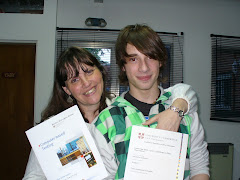
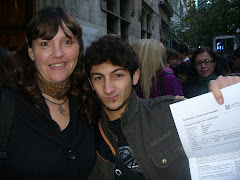
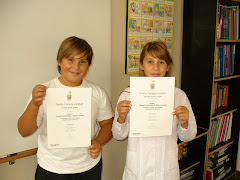
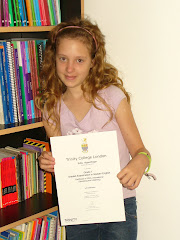

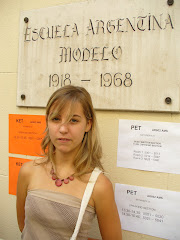


No hay comentarios:
Publicar un comentario